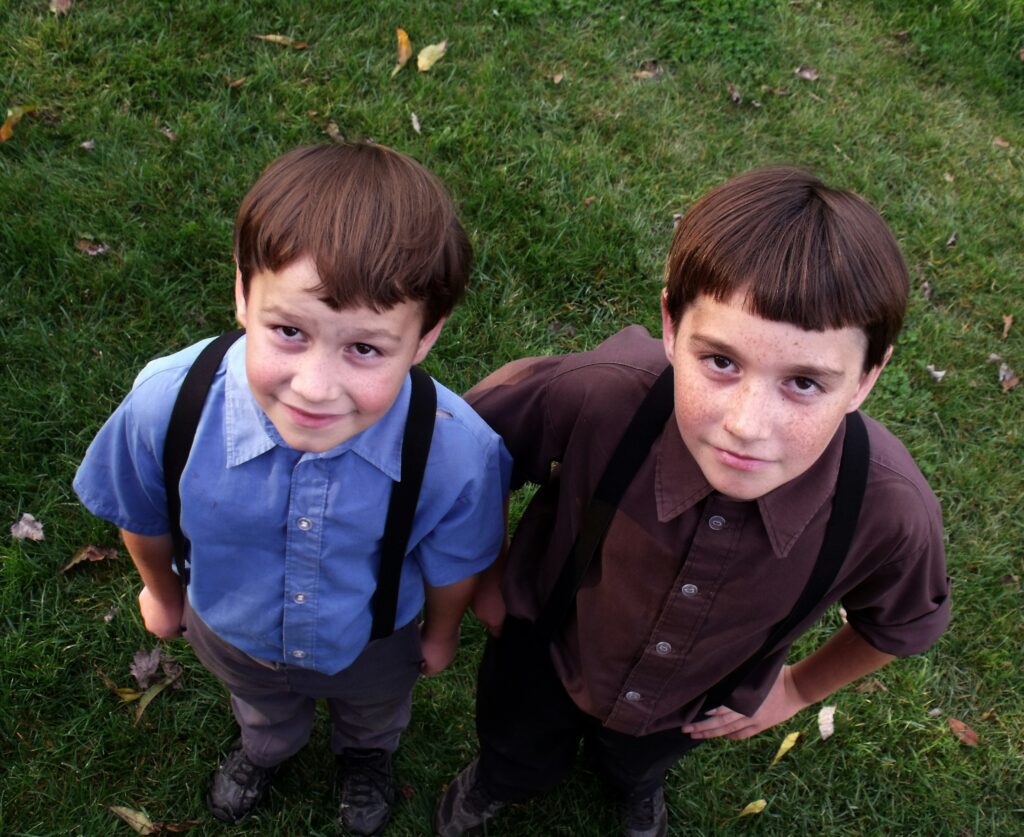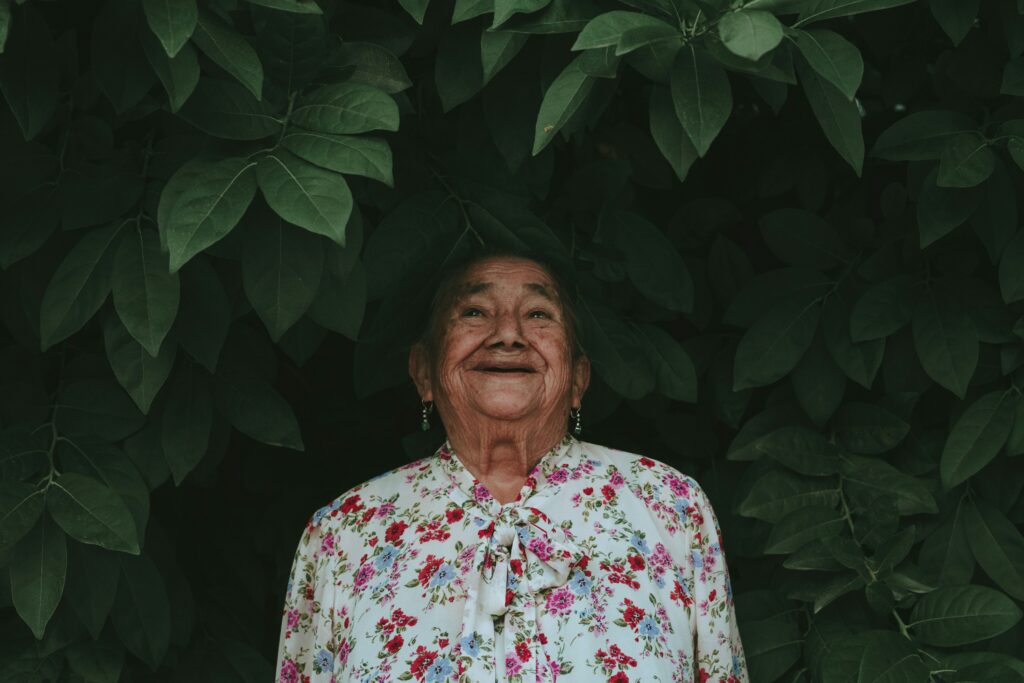
Ever notice how no matter how old we are, we are always asking ourselves questions? Some loud and dramatic, some quiet and lingering. Thy shift with each stage of life, sometimes funny, sometimes existential, but always deeply human.
You might have asked yourself, “Why do I feel like I don’t belong?” in your teen years. Or, “Am I really doing what I was meant to do?” in your twenties. Or, maybe, as you look back, you wonder, “Did I live the way I really wanted to?”
No matter where you are, these questions are a constant — and they deserve to be heard.
This isn’t about offering answers or solving every doubt. It’s about acknowledging the questions that help us make sense of our journeys, validate where we are right now, and recognize that we’re all in this together. The questions we ask ourselves are not just fleeting thoughts, but the breadcrumbs of self-discovery, revealing who we are becoming at every stage of life.
Let’s dive into the questions we tend to ask ourselves, from childhood through adulthood, and explore what they might be telling us about where we’ve been — and where we’re headed.
Ages 1–5: The World is Big, and I Am Small

In early childhood, the world is full of magic and mystery. Everything is a new experience. Questions come fast and without filter — rooted in curiosity, wonder, and a desire for safety.
- Why can’t I wear my superhero cape to the supermarket?
- What happens if I press this button?
- If I cry, will someone come?
- Do animals talk like we do?
- What happens if I break something?
- Do dogs understand me when I talk?
- How does Santa Claus visit every house in one night?
- Why are people laughing when they call me fat? Is that a bad thing?
- Where’s mom? Where’s dad?
- Will they still love me if I make a mistake?
- If I close my eyes, do I disappear?
- If I disappear, how long until someone notices?
- Will I ever be tall enough to reach the cookie jar?
At this stage, children are trying to understand safety, connection, and their place in a world that often feels too big. They’re not asking for answers — they’re looking for reassurance.
Ages 6–12: Trying to Make Sense of Fairness, Friendship & Self

This is when kids begin forming their social identities. They start noticing who gets picked, who doesn’t, and what it means to be “enough” in a group.
- Why do some kids get picked and others don’t?
- Is it right to tell the truth?
- Why do I have to do homework every day?
- Why do adults break the rules they make? and why can’t I?
- Why do people act nice but sound mean?
- Why don’t I look like the kids in ads?
- Why do I feel nervous speaking in front of the class?
- What’s wrong with me that I don’t like the same things they do?
- Can people hear what I’m thinking?
- Why do people laugh when I’m serious?
- Is dad coming home tonight?
- Am I adopted?
- Why can’t we afford the things that other families can?
Children at this stage are developing empathy, shame resilience, and a sense of fairness. They’re beginning to internalize rules — and break them in their heads first.
Ages 13–19: Identity, Belonging & Emotional Earthquakes

Teenage years are loud on the outside and loud on the inside too. There’s pressure to fit in, stand out, and figure yourself out — all at the same time. These questions often hide behind eye rolls, music on full blast, or long late-night scrolling.
- What should I do to make people like me more?
- Who am I, what am I, really?
- Do my parents really care about me? Why don’t they understand me?
- Do people actually like me, or just pretend?
- Why do I care so much what others think?
- Is everyone else faking it too?
- Why do I feel everything so deeply?
- What if I choose wrong now and ruin everything?
- What does love really mean?
- Why is everyone else in a relationship except me?
- Does getting good grades really get me to where I want?
- What if I choose the wrong career path?
- Why do I sometimes feel happy and sad at the same time?
Adolescents are trying to figure out where they end and others begin. They’re navigating identity, worth, boundaries, and connection — while still pretending to “have it together.”
Ages 20–35: Is This the Life I’m Meant to Live?

This stage often looks like freedom from the outside — but inside, it’s filled with pressure to succeed, be sure, be happy, be something. The questions are qui5 eter now, but they cut deeper. They show up in the middle of a workday, during long commutes, or in that moment right after closing a message you didn’t want to answer.
- Is everyone moving forward except me? Am I too behind?
- Am I really an adult now? Why do I feel like I’m performing a version of adulthood I don’t fully believe in?
- Why does adulting feel so lonely?
- Why is making friends in my 30s so hard?
- Am I in the right career, or did I settle too soon?
- What if I picked the wrong path?
- How do I stop comparing myself to everyone else?
- Is this love, or just convenience?
- Is this really the life I want? But what kind of life do I really want?
- Do I actually want this relationship, or am I scared to start over?
- What does “success” even mean to me?
- What i I never find the things that makes me come alive?
- Can I afford both rent and happiness?
- Why scrolling phone gives me so much anxiety and comfort at the same time?
- What if I’m the only one who still doesn’t have a plan?
- Am I actually happy, or just busy?
This stage is a balancing act between proving yourself and finding yourself. There’s a deep tension between the life you imagined and the one you’re actually living.
Ages 36–50: The Quiet Reckonings

By this stage, life might look established — career, relationships, routines. But under the surface, there’s often a quiet inventory taking place. A questioning of old dreams, shifting roles, and a longing to fell more alive again — or maybe for the first time.
- When did I stop recognizing the person in the mirror?
- Is this what success is supposed to fell like?
- Have I spent too much of my life making everyone else comfortable?
- What happened to my dreams?
- Did I choose this life, or did I just keep saying yes until it formed around me?
- When did my relationship start feeling like a project instead of connection?
- Is there still time to reinvent myself?
- Why does everyone seem to be getting married/having babies except me?
- Am I still allowed to want more?
- When did joy become something I schedule instead of feel?
- How do I explain to my child that I’m doing my best? Why can’t people see that I’m trying my best already?
- How did life become so full, yet feel so empty?
- Can I start over… and not lose everything?
- Will I even be satisfied with life?
This phase isn’t a crisis. It’s a confrontation with truth. It’s where many of us stop chasing and start pruning — making room for something real to grow.
Ages 51–65: Redefining Purpose & Self\

The questions in this phase often come quietly, in the early mornings or during moment of pause. Life has brought its share of joy, pain, and change. There’s a deeper awareness now — of time, of mortality, of the stories that didn’t unfold the way you thought they would. But also, maybe, of a freedom you’ve never fully claimed before.
- What’s next for me, beyond obligation?
- Who am I, now that I’m not constantly needed?
- What regrets am I still holding onto?
- What do I want to leave behind?
- Why does every medical check-up feel like opening a mystery box?
- Why do some parts of me still feel young?
- Can I still do something bold?
- How do I find meaning outside of productivity?
- Have I loved the people in my life wel enough?
- Who are my real friends now?
- What does it mean to live well — really?
This stage is about identity beyond roles. It’s a chance to rewrite what fulfillment looks like, on your own terms.
Ages 66 and Beyond: Peace, Legacy & Being Seen

There’s a tenderness in this phase. Time stretches and contracts. The noise of striving fades, and what’s left are the people you love, the memories that visit you unexpectedly, and the questions that once felt urgent, now softened by perspective. But even now, the wonder — and the ache — never fully leave.
- Did I really live the life I wanted?
- Why does it feel like the world has moved on without me?
- How will people remember me?
- Is this pain from something serious… or did I just sleep weird again?
- What still lights me up inside?
- Why do I sometimes feel invisible?
- What do I actually like doing now that no one’s scheduling my every waking hour?
- Why do people stop asking for my opinion as I age?
- What does a good goodbye look like?
- Did I hold on too tightly to things I should’ve let go?
- What does ‘being useful’ look like now, when no one really asks for me help anymore?
- What else can I do with my life? Am I just passing days or?
This stage is a return to self — a chance to slow down, make peace, and pass on wisdom in quiet, generous ways.
So, Why Do These Questions Matter?
Because they’re the thread that connects every version of you.
They remind us that while our lives look different, our inner worlds are far more similar than we realize. We’re all just trying to make sense of things — in the language of our age, our wounds, our longings.
You’re not alone in your wondering. And the questions you’re carrying right now?
They just might be the bridge to your next chapter.
Something to Take With You
Ask yourself:
What stage am I in right now?
And which of these questions have I been quietly holding, too afraid to say out loud?
You don’t need to have the answer. Sometimes, just asking — really asking — is enough to change everything.
Now it’s your turn — what’s a question you’ve been carrying lately?
Drop it in the comments below. It might be something you’ve never said out loud, or something you’ve asked a hundred times. Either way, you’re not alone. Let’s create a space where wondering is welcome — and where every stage of life is met with a little more kindness, truth, and curiosity




